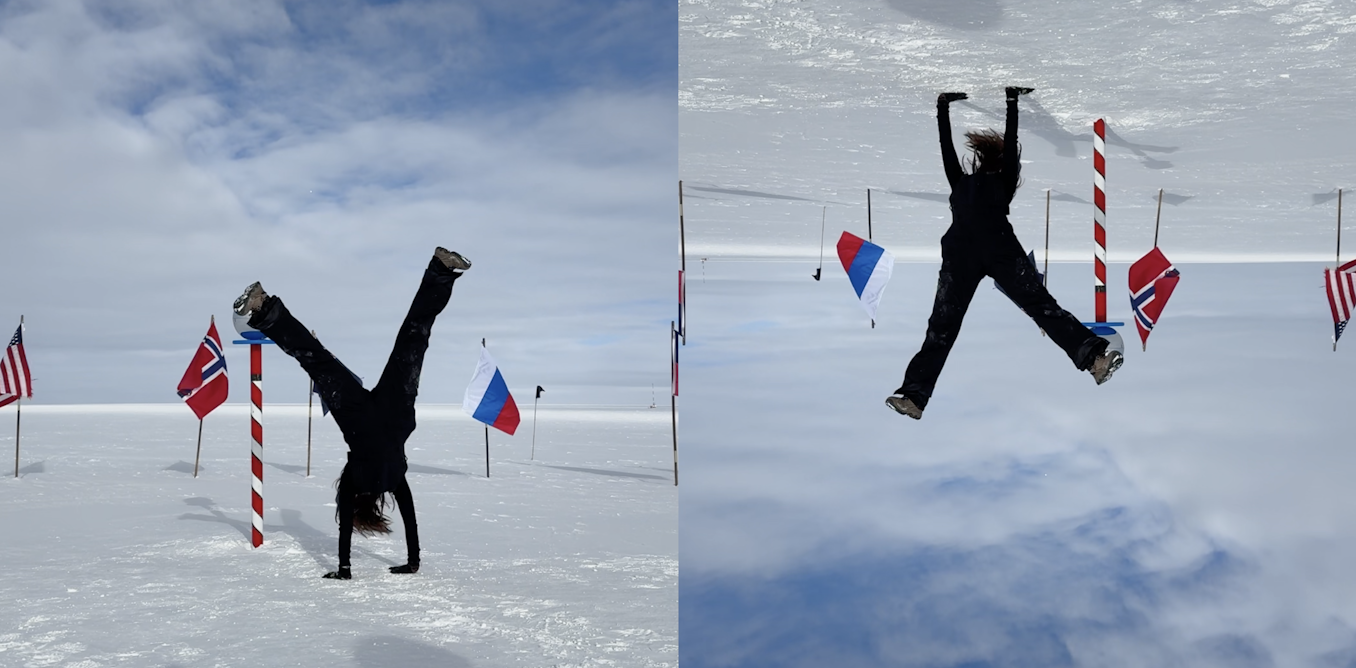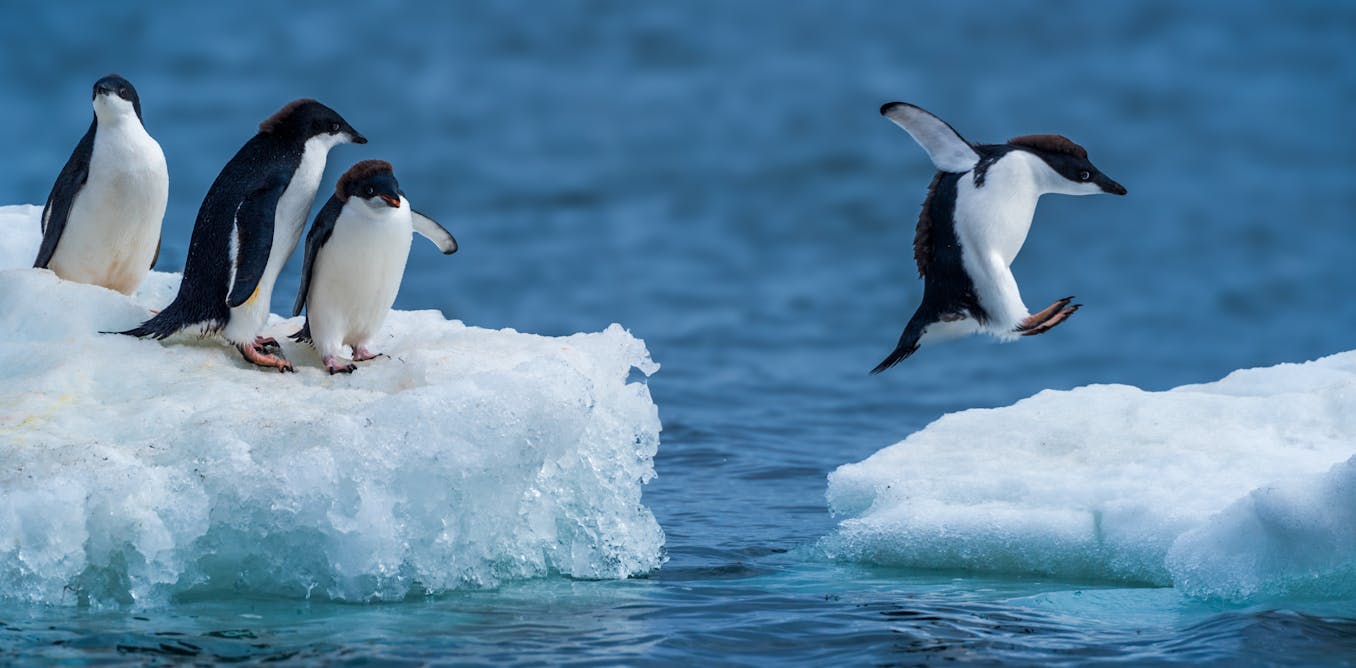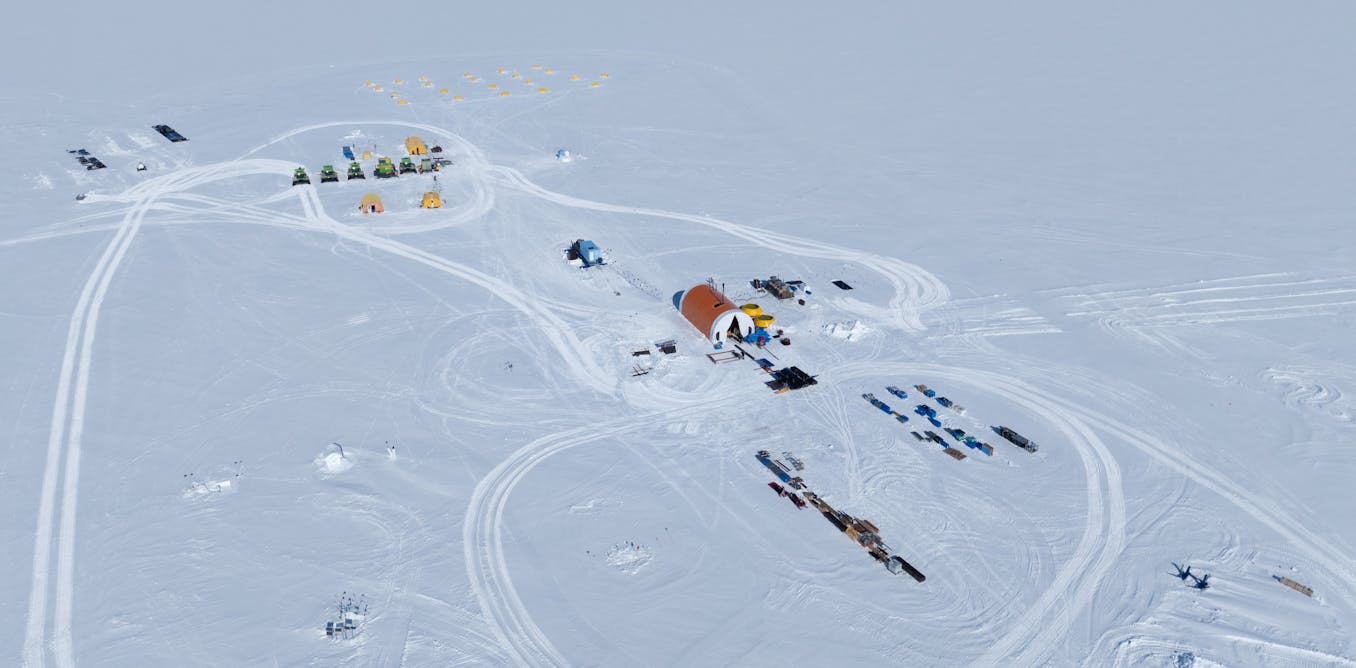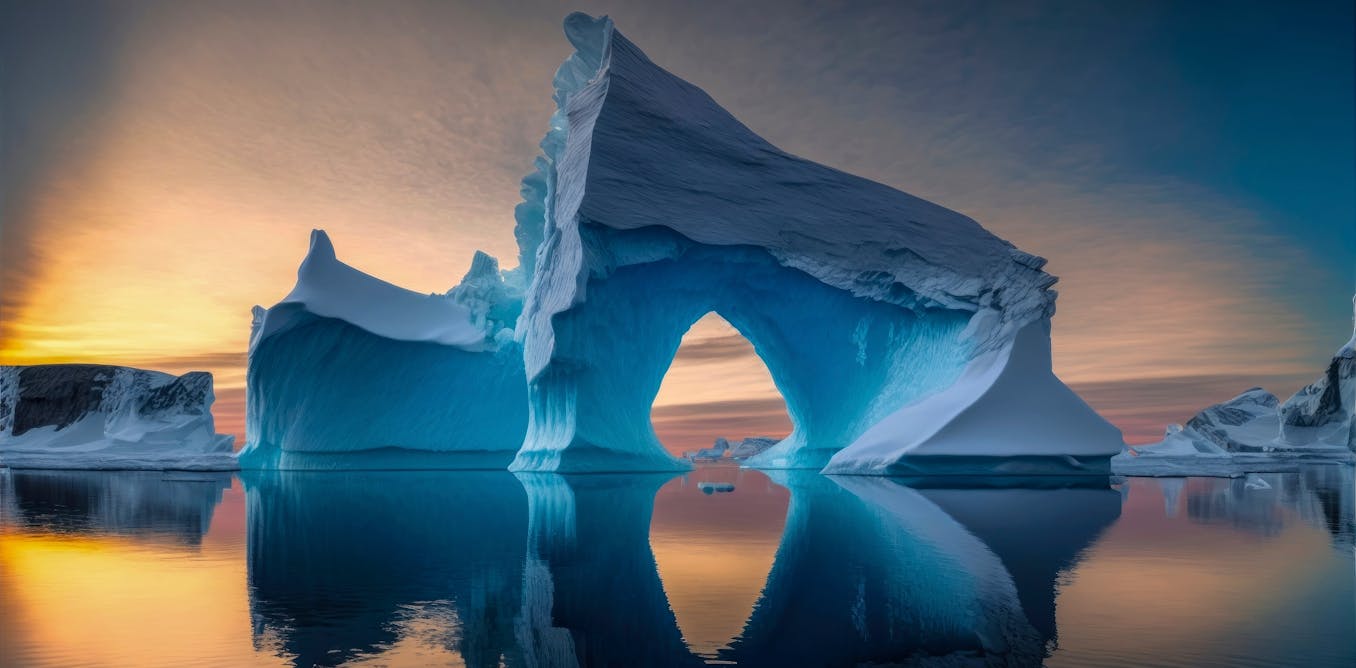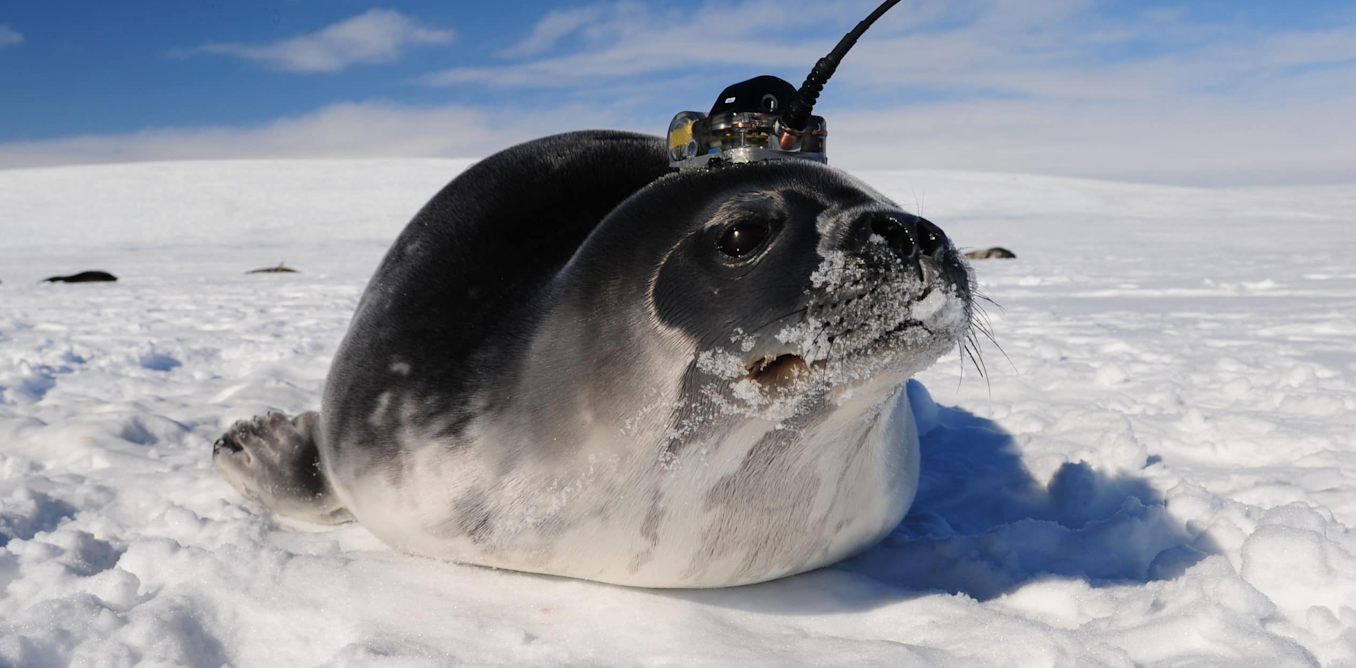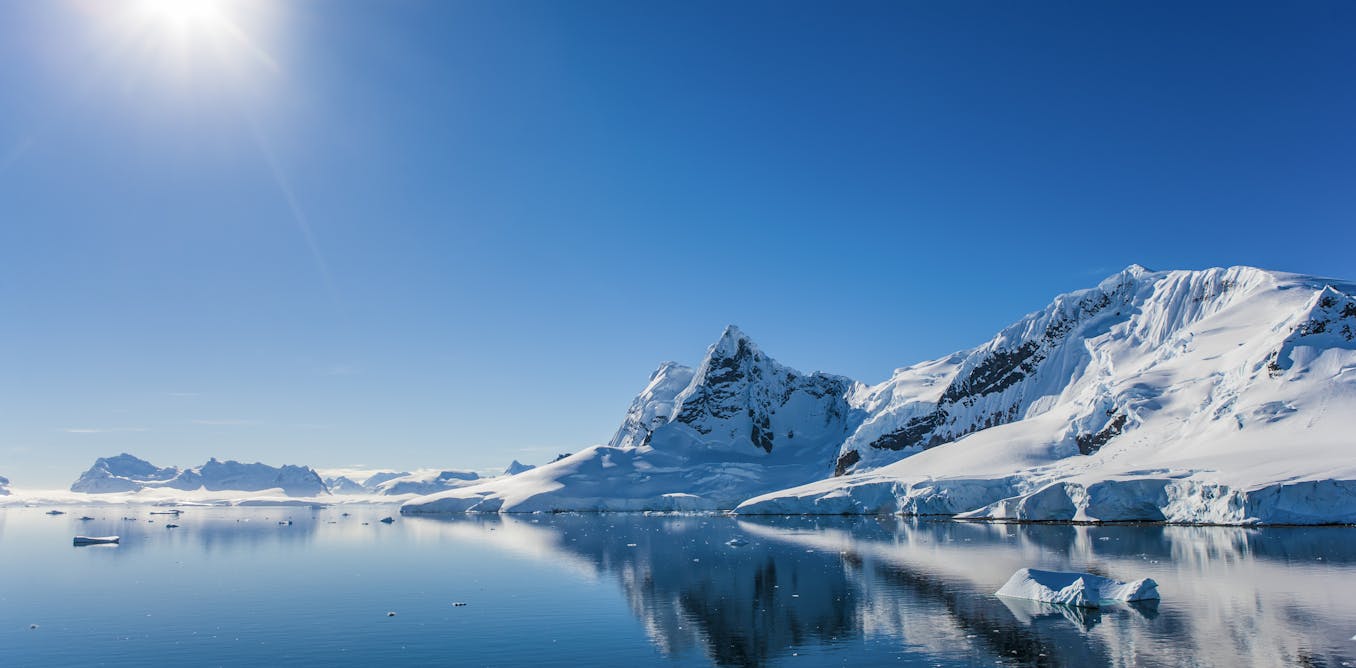‘Completely unexpected’: Antarctic sea ice may be in terminal decline due to rising Southern Ocean salinity
Scientists once thought Antarctica might hold onto its sea ice as the world warmed. No longer.
June 30, 2025 • ~7 min
What ancient ice sheets can tell us about future sea level rise
When ice gets trapped on land as giant ice sheets, it causes the sea level to change, but it doesn’t change by the same amount all around the planet.
June 20, 2025 • ~6 min
At Antarctica’s midwinter, a look back at the frozen continent’s long history of dark behavior
Antarctica is a harsh continent, which in both history and fiction can trigger disturbing behavior and even madness.
June 20, 2025 • ~11 min
Whales are recovering from near extinction, but industrial fishing around Antarctica competes for their sole food source
The Southern Ocean’s krill-rich waters attract multiple species of filter-feeding whales – and, increasingly, fishing boats.
Sept. 10, 2024 • ~5 min
Thwaites Glacier won’t collapse like dominoes as feared, study finds, but that doesn’t mean the ‘Doomsday Glacier’ is stable
Antarctica’s riskiest glacier is a disaster in slow motion, a polar scientist writes. But in a rare bit of good news, the worst-case scenario may be off the table.
Aug. 21, 2024 • ~9 min
First map of vegetation across Antarctica reveals a battle for the continent’s changing landscape
In the barren cold deserts of ice-free Antarctica only lichen, mosses and algae survive – for now.
Aug. 8, 2024 • ~5 min
Tagging seals with sensors helps scientists track ocean currents and a changing climate
In some of the most remote places on Earth, tags attached to seals collect data at the cutting edge of ocean science.
July 25, 2024 • ~5 min
A single Antarctic heatwave or storm can noticeably raise the sea level
To narrow our predictions of global sea level rise, we need to know more about these sudden ‘non-linear’ changes to ice sheets.
Feb. 20, 2024 • ~7 min
/
5

